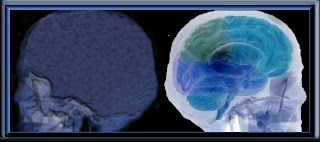ignorance vs knowledge
 Ignorance can be defined as the state of lack of knowledge, or as the willful refusal to increase one's knowledge.
Ignorance can be defined as the state of lack of knowledge, or as the willful refusal to increase one's knowledge.It is, of course, impossible to know all that could be known of the store of human knowledge, so the term 'ignorance' is often applied to willful ignorance.
Knowledge can be defined as means comprehension of truth, that is, a cognitive awareness and understanding of facts, truths or information. Where beliefs are logically justified by facts, those beliefs are elevated to knowlede from the level of mere opinion.
Rationality and knowledge are linked in so far as cognitive awareness cannot exist without the capacity for rational thought. However, the mere ability to generate ideas does not necessarily lead to rational concepts since ideas can have a particularly silly content.
Knowledge can be acquired through experience, through semantic learning (a posteriori knowledge), or through introspection (a priori knowledge). Most useful knowledge falls into the a posteriori category, while very little outside self-knowledge can be regarded as useful a priori knowledge.
With regard to religion, the term 'knowledge' can apply only to awareness of the content of religious belief systems because there is no logically necessary connection between the facts of reality and the various claims made within religious systems. That is, even beyond the mutually exclusive and internal contradictions of the various religious belief systems, no system provides the best available explanation for natural phenomena. So, religious claims of providing the 'Truth' fail to provide any incontrovertible truth.
For this reason, religious systems resort to claiming to provide knowledge of the supernatural, of phenomena that do not exist in nature or are not subject to explanation according to natural laws. This retreat into magic-thinking is a retreat from direct disproof as well as from validation. The fact that a belief cannot be disproven is not good grounds for any claim for veracity for that claim, particularly where religious beliefs claim to intersect with the material world ("God works in mysterious ways" when referring to Earthly manifestations, claims for miracles). Equally, claims for such supposed, wishful thinking, or fear-imbued supernatural phenomena as an afterlife are ludicrously out of line with anything within the natural world. These natural facts include the connection between the brain and consciousness, and the phenomenon of death despite the persistence of the physical body.
The fact also remains that there are motive-based explanations for the claims of various belief-in-afterlife systems – they provide either positive emotions by reducing the fear of death, or they provide positive controls on behaviour by threatening eternal damnation for those who disobey authority. Such emotions are useful to both the believer and to leaders who wish to send their subjects into battle, have their subjects perform politically directed self-destruction, or merely to decrease undesirable behaviours. These emotional primary and secondary gains alone would render claims for a supernatural afterlife highly suspect.
. o .
Labels: afterlife, belief, ignorance, knowledge, secondary gains, supernatural







0 Comments:
Post a Comment
<< Home